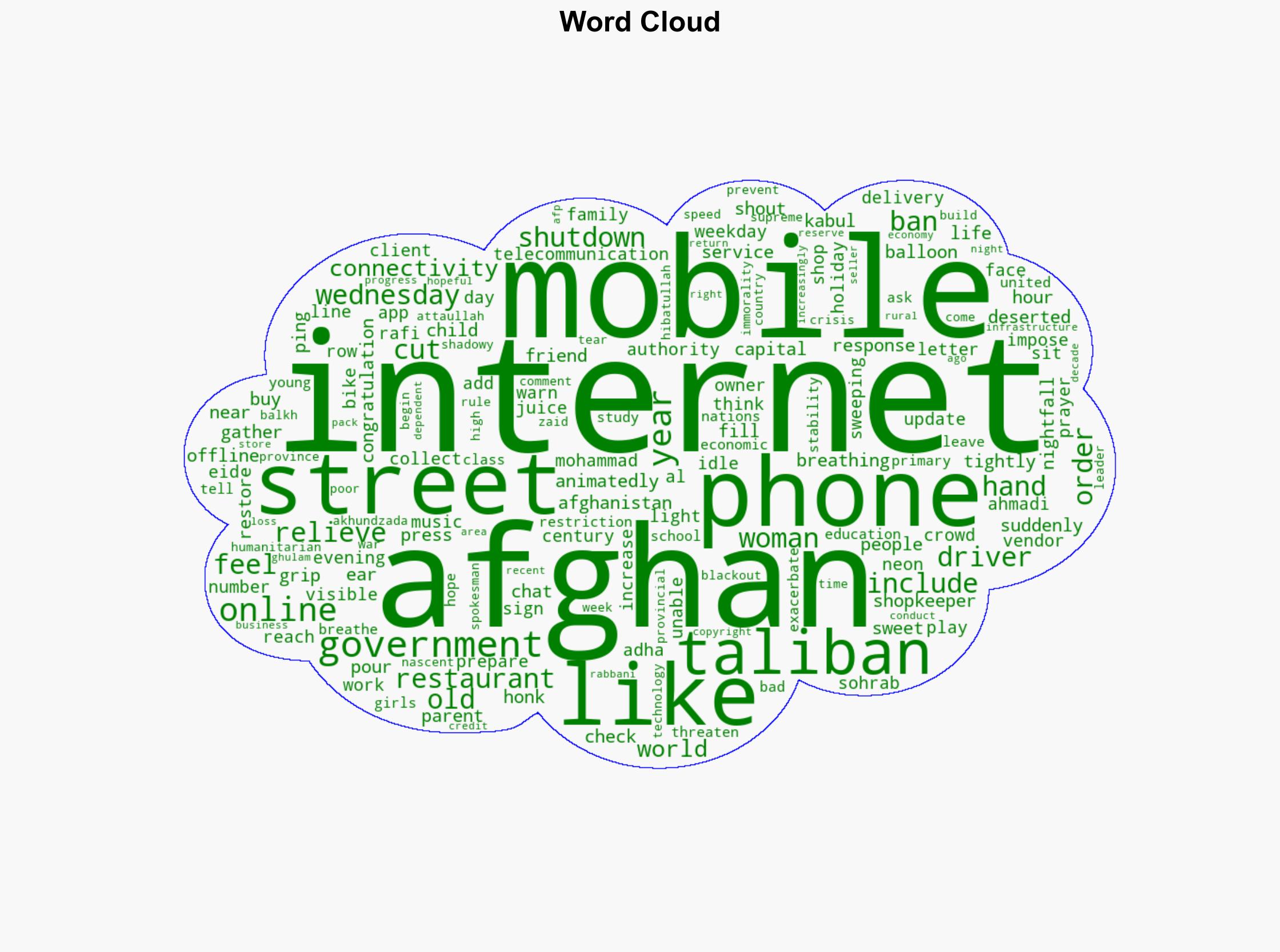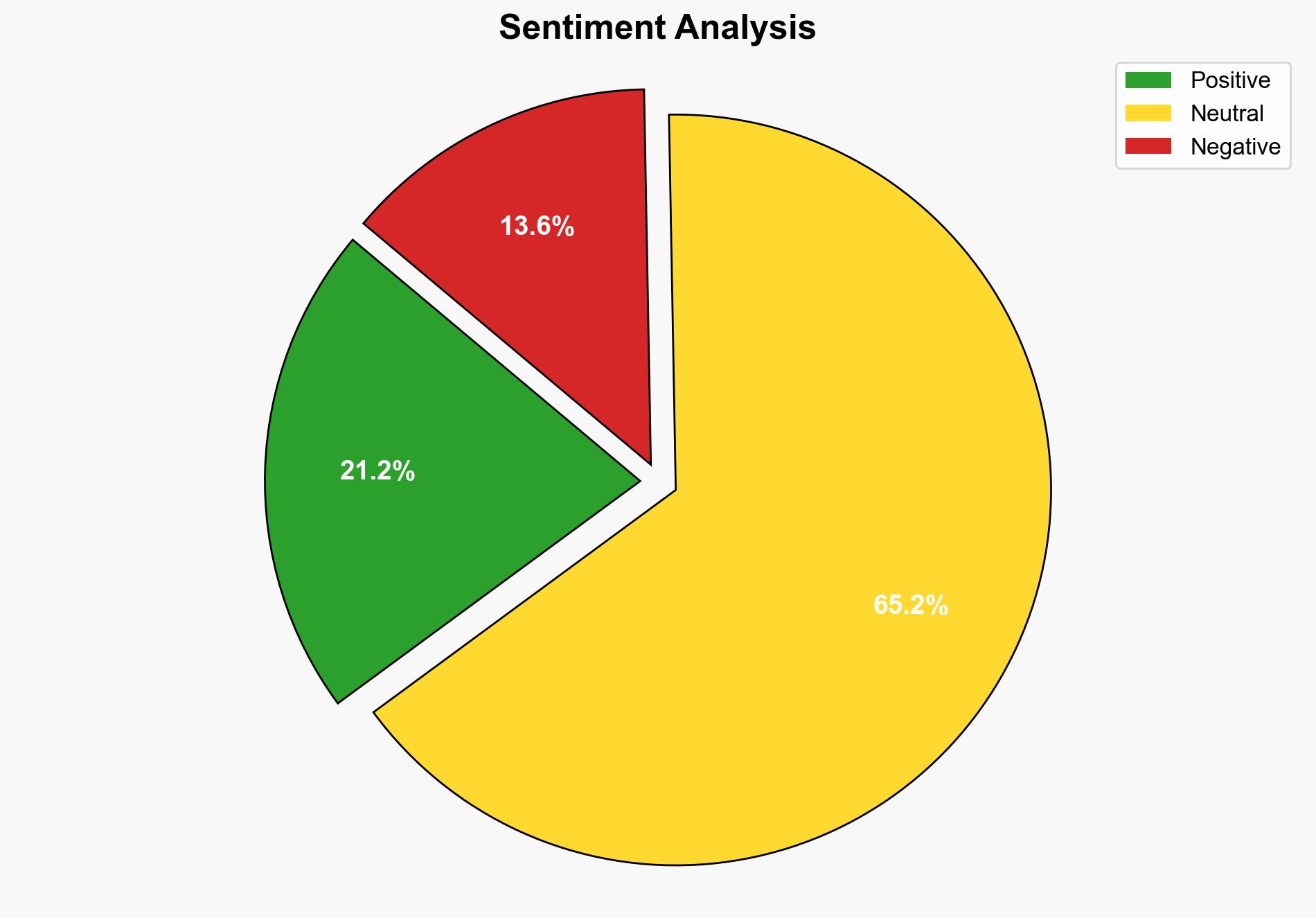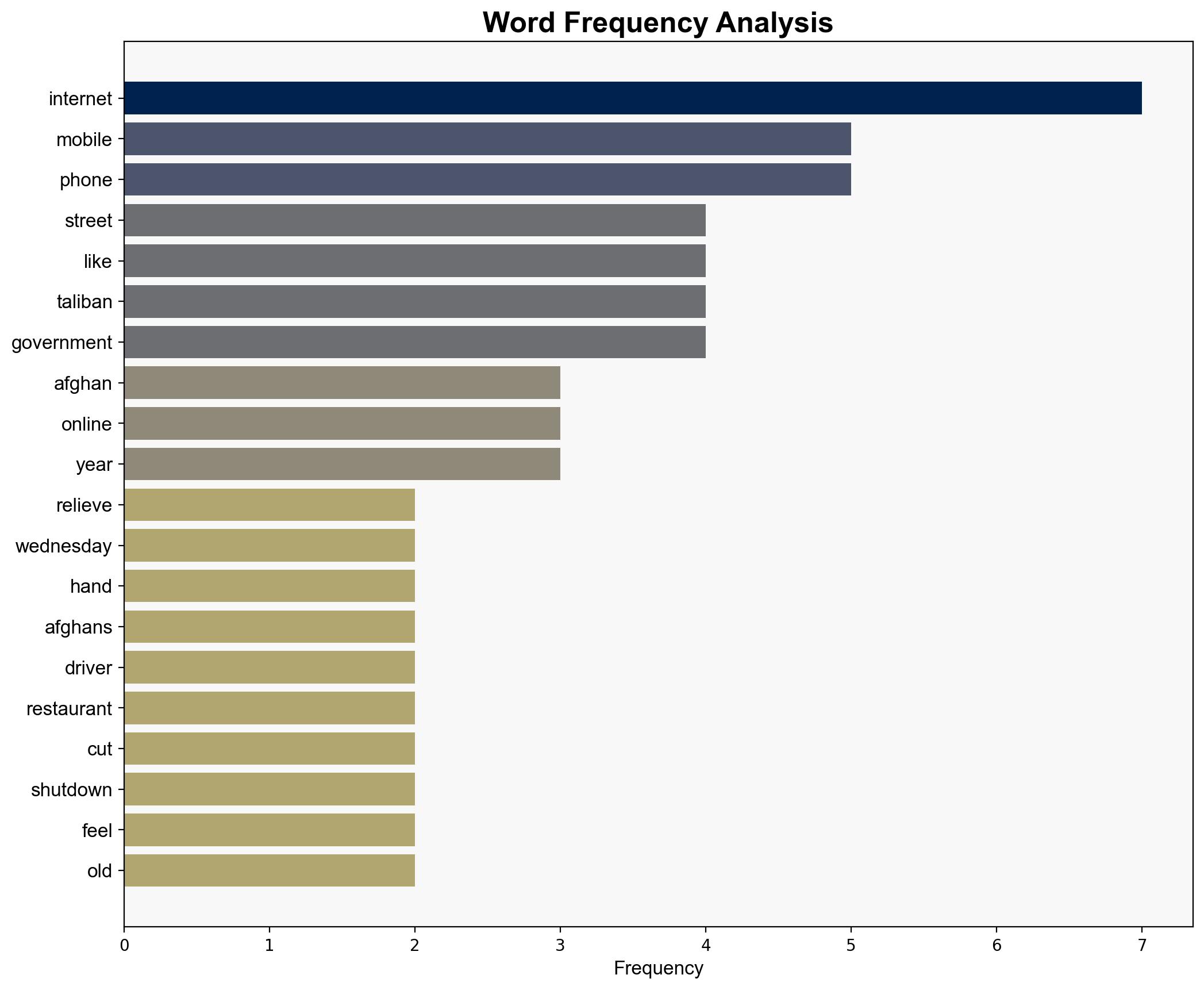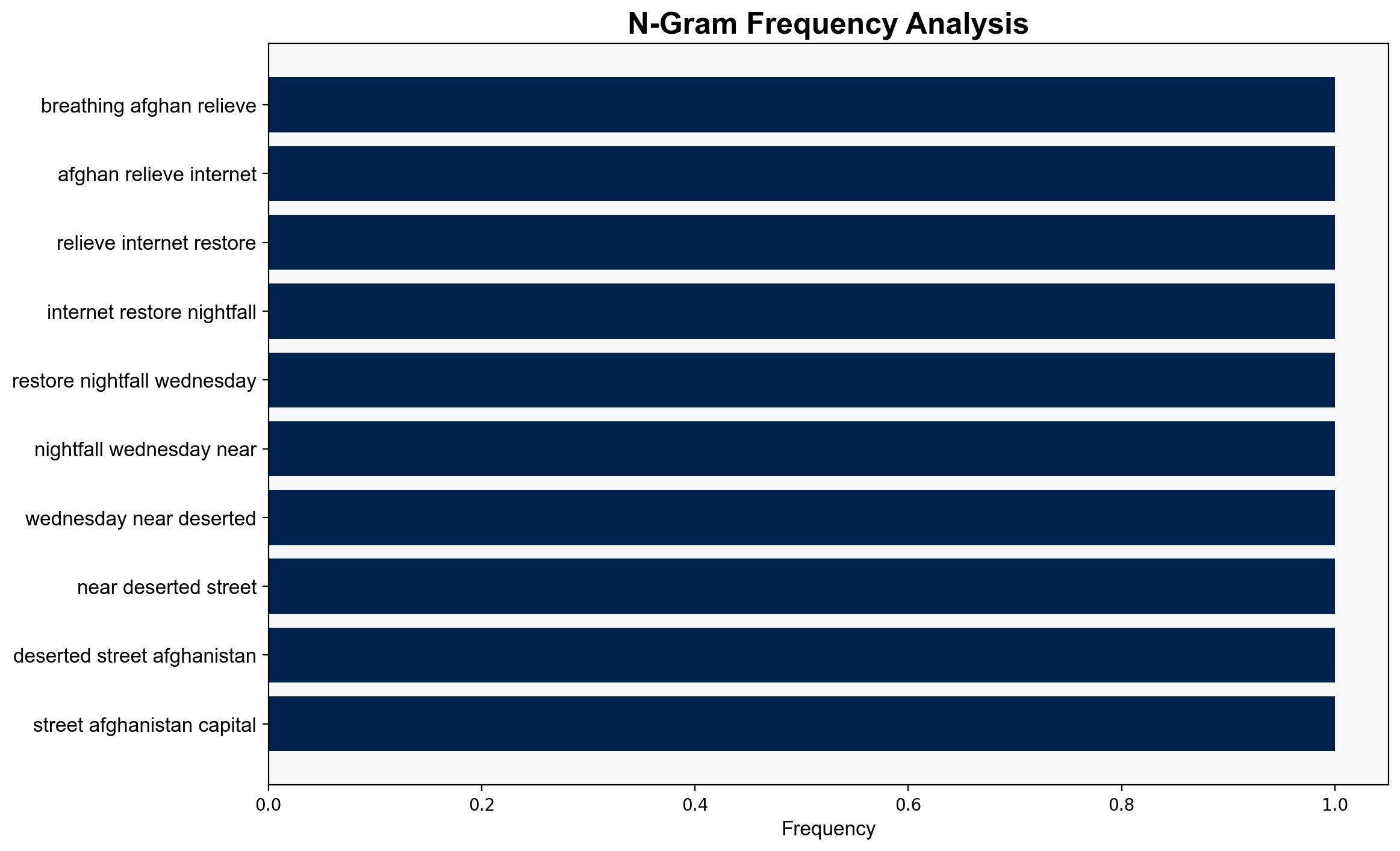‘I’m Breathing Again’ Afghans Relieved After Internet Restored – International Business Times
Published on: 2025-10-01
Intelligence Report: ‘I’m Breathing Again’ Afghans Relieved After Internet Restored – International Business Times
1. BLUF (Bottom Line Up Front)
The restoration of internet services in Afghanistan highlights the tension between governmental control and public demand for connectivity. The most supported hypothesis is that the Taliban government is using internet shutdowns as a tool to maintain control and suppress dissent. Confidence level: Moderate. Recommended action: Monitor the situation for further internet disruptions and assess their impact on regional stability and humanitarian conditions.
2. Competing Hypotheses
1. **Hypothesis A**: The Taliban government is intermittently shutting down internet services to suppress dissent and control the flow of information, particularly in response to perceived threats of immorality and opposition.
2. **Hypothesis B**: The internet shutdowns are primarily due to infrastructural challenges and not a deliberate strategy by the Taliban, reflecting the country’s ongoing struggle with technological and economic development.
Using ACH 2.0, Hypothesis A is better supported by the evidence of targeted shutdowns in specific provinces and statements from Taliban officials about controlling immorality. Hypothesis B lacks direct evidence and is weakened by the restoration of services following public outcry, suggesting a responsive rather than purely infrastructural issue.
3. Key Assumptions and Red Flags
– **Assumptions**: Hypothesis A assumes the Taliban has both the capability and intent to use internet control as a political tool. Hypothesis B assumes that infrastructural issues are the primary cause of disruptions.
– **Red Flags**: The lack of official statements from the Taliban on the strategic use of internet shutdowns raises questions. The rapid restoration of services suggests possible external pressures or internal dissent within the Taliban.
– **Blind Spots**: Potential international influence or pressure on the Taliban to restore services is not addressed.
4. Implications and Strategic Risks
The strategic use of internet shutdowns could exacerbate humanitarian crises by disrupting communication and economic activities. It poses risks of increased public unrest and international condemnation. If the Taliban continues this practice, it may lead to further isolation and economic decline, impacting regional stability.
5. Recommendations and Outlook
- Monitor internet connectivity patterns in Afghanistan to identify potential future shutdowns.
- Engage with international bodies to advocate for consistent internet access as a human right.
- Scenario Projections:
- Best: Taliban ceases internet shutdowns, leading to improved economic conditions and reduced public unrest.
- Worst: Continued shutdowns lead to significant economic decline and increased civil unrest.
- Most Likely: Intermittent shutdowns persist, causing periodic disruptions but not escalating to widespread conflict.
6. Key Individuals and Entities
– Mohammad Rafi: Mobile phone shop owner expressing relief at internet restoration.
– Sohrab Ahmadi: Delivery driver affected by internet shutdowns.
– Attaullah Zaid: Balkh provincial spokesman commenting on internet bans.
– Hibatullah Akhundzada: Taliban’s supreme leader associated with the directive on internet control.
7. Thematic Tags
national security threats, cybersecurity, counter-terrorism, regional focus





